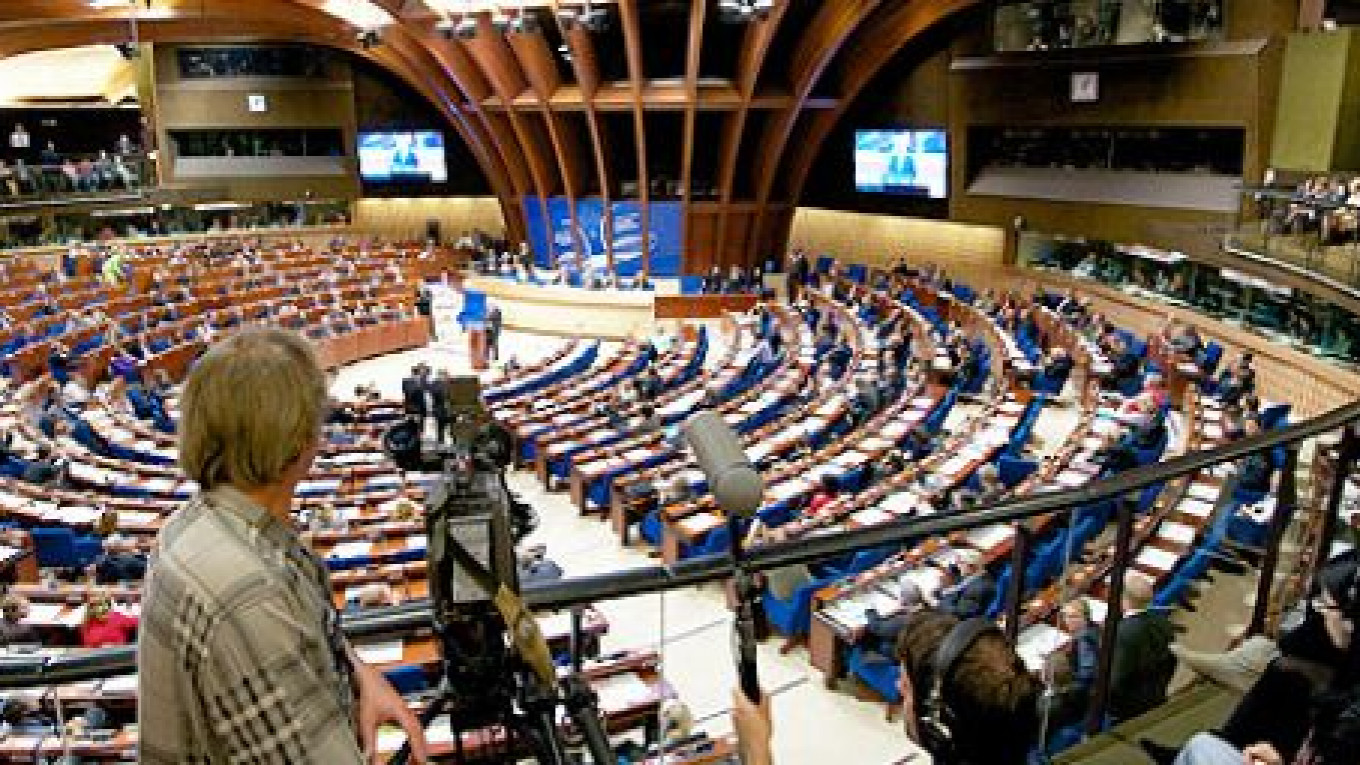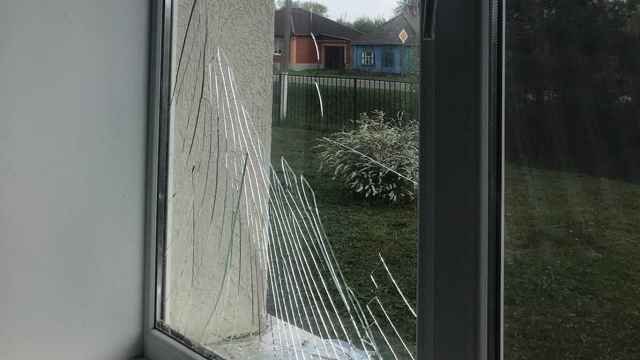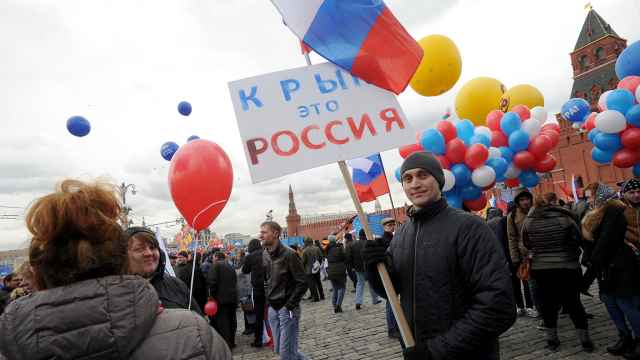Lawmakers with the Parliamentary Assembly of the Council of Europe are to consider a resolution criticizing Russia for "politically motivated justice" and urging it to roll back tough laws on Internet speech, street protests, NGOs, and the "promotion of homosexuality" to minors.
The resolution — which also contains praise for Russian reforms such as a softening of the law on political parties and a return to direct gubernatorial elections — is part of a draft report outlining how several member states, including Russia, are fulfilling their obligations and commitments to the Council of Europe, the continent's top human rights body.
Lawmakers in Strasbourg were to start debate on the resolution, prepared by Estonian member Andres Herkel, immediately after State Duma Speaker Sergei Naryshkin speaks to the assembly at noon (3 p.m. Moscow time), Interfax reported.
Naryshkin, who was joining other countries' leaders in addressing PACE for the opening of its fall session this week, was expected to speak for about an hour.
The bulk of the Russia section of the report, which covers the period from June 2012 to September 2013, focuses on "worrying developments" that PACE representatives observed during two visits to Russia in July 2012 and July 2013.
The resolution singles out laws implemented by President Vladimir Putin since his return to the Kremlin for a third term that it says have restricted basic freedoms. The laws include the criminalization of defamation on the Internet, harsh penalties for participating in unauthorized street protests, the vaguely worded ban on "gay propaganda" to minors, and a requirement that nongovernmental organizations that receive foreign funding and engage in political activities register as "foreign agents."
The resolution also expresses "serious concerns about politically motivated justice, reinforced by recent judgments against Mr. Alexei Navalny and the late Mr. Sergei Magnitsky," according to a draft text published on PACE's website.
Navalny, a leader of huge opposition street protests that observers believe prompted Putin to introduce many of the laws criticized in the PACE resolution, was sentenced to five years in prison on embezzlement charges that his supporters call Kremlin punishment for his political ambitions. Magnitsky, a lawyer who died in pretrial detention in 2009 after accusing Russian officials of corruption, was convicted in a posthumous trial of the same corruption charges that he had brought against those who arrested him.
The PACE resolution calls on Russia to revise the contentious laws and to ensure that "the executive authorities refrain from exercising influence on the judiciary."
The likelihood of the resolution being approved in its current form was unclear. PACE's Russian delegation was almost certain to put up a strong protest.
Despite its harsh reproach of Putin's initiatives, the resolution also "welcomed some positive steps." It mentions amendments to the law on political parties that make it easier for opposition parties to register, changes in the electoral law, the reintroduction of direct elections for governors, and a series of reforms in the court and prison system.
A Message from The Moscow Times:
Dear readers,
We are facing unprecedented challenges. Russia's Prosecutor General's Office has designated The Moscow Times as an "undesirable" organization, criminalizing our work and putting our staff at risk of prosecution. This follows our earlier unjust labeling as a "foreign agent."
These actions are direct attempts to silence independent journalism in Russia. The authorities claim our work "discredits the decisions of the Russian leadership." We see things differently: we strive to provide accurate, unbiased reporting on Russia.
We, the journalists of The Moscow Times, refuse to be silenced. But to continue our work, we need your help.
Your support, no matter how small, makes a world of difference. If you can, please support us monthly starting from just $2. It's quick to set up, and every contribution makes a significant impact.
By supporting The Moscow Times, you're defending open, independent journalism in the face of repression. Thank you for standing with us.
Remind me later.






